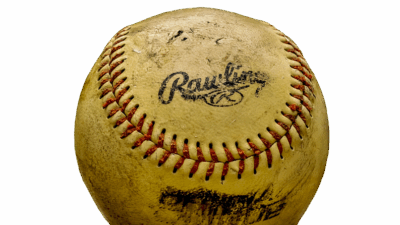When we think of professional sports, our minds often drift to the athletes—those gladiators of the gridiron, pitch, or court, wreathed in glory and driven by passion. However, behind their every stride and score is a crucial figure often overlooked: the referee. Invisible to fans yet indispensable to the game, referees embody a unique blend of authority, integrity, and poise. But what does a day in the life of a professional referee really look like?
The Early Start: Preparation Begins
Most referees start their day in the early hours, often well before dawn. A typical morning can begin with a nutritious breakfast designed to provide lasting energy, followed by a fitness regimen tailored to maintain peak physical condition. A referee is not merely a whistle-blower; they must possess the agility to keep up with athletes performing at their best.
After the workout, it’s time for mental preparation. This could involve watching video highlights from past games—analyzing calls, player behavior, and reactions—to fine-tune their decision-making skills. Referees often review rule alterations, ensuring they remain updated on the game’s evolving landscape.
Arriving at the Venue: The Calm Before the Storm
Upon arriving at the venue, there’s a palpable buzz in the air. The sound of fans flocking, the sight of the field or court being prepared, and the intoxicating aroma of stadium food all weave together to create an atmosphere ripe with anticipation.
Referees conduct a thorough inspection of the playing surface before the game kicks off. They look for any safety hazards, check the equipment, and ensure that everything adheres to league standards. Following this, a pre-game meeting with other officials is essential. This is where they discuss game tactics, review relevant rules, and establish communication signals for the match ahead.
Game Time: The Whistle Blows
As the opening whistle pierces the air, the weight of judgment rests heavily on the referee’s shoulders. Each decision, whether a simple callout for offside or a game-changing penalty, can make or break the narrative of the match.
Throughout the game, referees must maintain absolute focus. They must swiftly assess situations while juggling nerves, crowd reactions, and player dynamics. The pressure can be immense, but seasoned referees rely on instinct, training, and teamwork with their fellow officials. Communication is crucial; often a glance or a subtle hand signal speaks volumes in the heat of the moment.
Despite their training, referees are human. Mistakes can—and do—happen. A loud chorus of boos may erupt from a section of the stands following a controversial call. However, professionalism is key; a referee must not show any sign of doubt or fear in the face of adversity.
Post-Game Reflections: Analyzing Performance
After the final whistle blows, the emotional spectrum of a referee is diverse. Relief, satisfaction, frustration, or disappointment can all be felt simultaneously. The post-game routine often includes a debrief with fellow referees to discuss what went right, what went wrong, and whether any rules were misinterpreted.
Following this, many referees spend their evenings reviewing video footage of the match. This critical analysis not only helps in adjusting future calls but also assists leagues and coaches in understanding how officiating impacts gameplay. Constructive criticism is always welcome, as a referee’s growth relies on reflection and adaptation.
The Balancing Act: Juggling Life and Career
Off the field, a professional referee has a life that extends far beyond the whistle. Many pursue secondary careers, be it coaching, training athletes, or engaging in sports management. Balancing the rigorous travel schedule with personal commitments can be challenging. Referees are often away from home for extended periods, requiring strong support systems and flexibility.
Moreover, the mental strength needed to cope with external pressures can be taxing. Public scrutiny, heated debates on social media, and fan reactions necessitate a thick skin and a healthy mindset. Many referees turn to mental wellness strategies, including meditation and therapy, to bolster their resilience.
Conclusion: The Unsung Heroes of Sport
While athletes take center stage, the unsung heroes behind the whistle navigate a complex world of rules, fairness, and integrity. Each match is a microcosm of life itself, filled with triumph, tribulation, and the relentless pursuit of excellence. As fans cheer and jeer, it’s essential to remember the individuals who keep the game in check, embodying discipline and authority with every passionate, weighty, breathless call made in the heat of battle.
Being a referee is more than a job; it’s a commitment to the spirit of sport, ensuring that the game remains fair and thrilling for athletes and enthusiasts alike.



